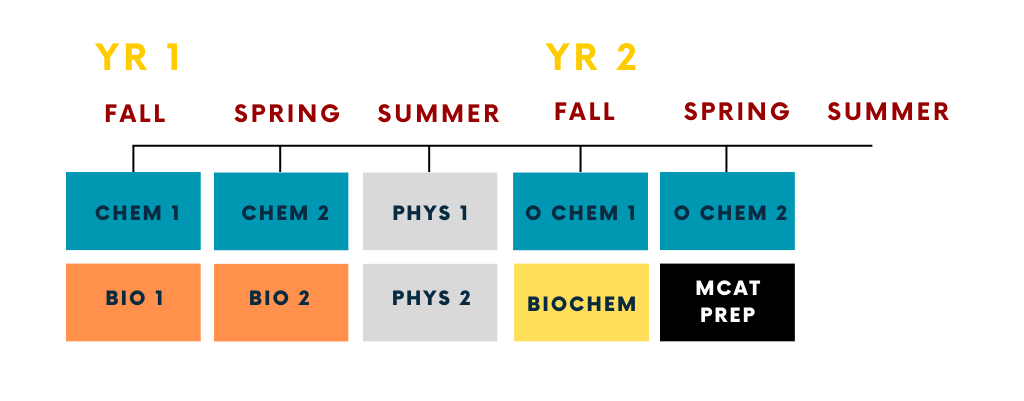Medical school science prerequisites
Our core curriculum covers the course requirements for the majority of US and Canadian medical schools. The science prerequisites for medical schools typically include:
- 1 year of General biology with lab (General Bio 1 and General Bio 2)
- 1 year of Physics with lab (General Phys I and General Phys 2)
- 1 year of General chemistry with lab (General Chem I and General Chem 2)
- 1 year of Organic chemistry with lab (Organic Chem I and Organic Chem 2)
- 1 semester of Biochemistry (Biochemistry)
English, Math and Social Science
Most medical schools also require the following undergraduate courses. We recommend that students complete these courses either before they enter USC’s Postbacc Program or during the program, but these courses do not necessarily have to be taken at USC.
- 1 year of math (statistics, college-level math, or calculus)
- 1 year of English
- 1 semester of psychology and/or sociology
Postbacc Standard Course Plan
Our program length is roughly 2 years of coursework (more precisely, 4 + 1/2 semesters). After their coursework and the MCAT, students will typically spend an additional year during their application cycle before they start medical school. Below is our standard course plan for our Fall cohorts. (Spring and Summer cohorts have a course sequence.) Please note individual course plans are created based on the student’s needs and goals and any previously completed premed coursework. Some students have the option of completing coursework in 3 semesters or roughly 1 year.

Application Year (Glide Year)
Year 3 is considered the “Glide Year” and accounts for the year-long medical school application process. It begins with the initiation of the AMCAS application to medical school, continuing on to interviews, until medical school instruction begins. During this time students may elect to take additional coursework, such as genetics or physiology, which may be recommended or required by some medical schools. Students also continue with clinical experience, volunteering, research, work, and visiting and interviewing at medical schools.